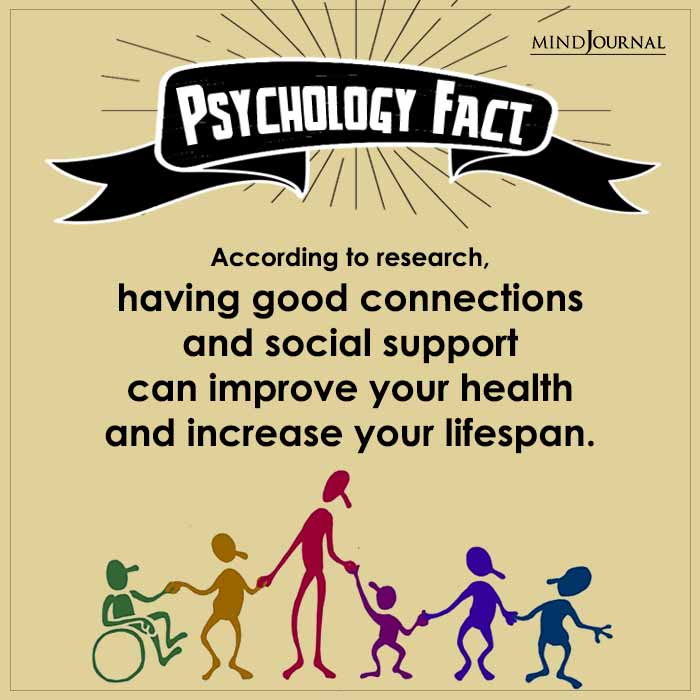Did you know that about 1 in 10 dads deal with postpartum depression and anxiety? For new dads, the transition to a parent can be accompanied by a surge of emotions, responsibilities, and yes, stress. Therefore, learning how to manage new dad stress is crucial for self-care of parents.
In the past few years, there has been a noticeable shift towards prioritizing the well-being of new mothers more than ever before. However, it’s increasingly evident that we shouldn’t overlook the mental health of fathers.
So, we’ll share some helpful tips and ideas to make it easier for new dads to deal with all the stress that comes with being a parent. And to help you understand if you might be dealing with this kind of stress, we’ll also talk about the signs of new dad stress. So let us begin!
Signs Of New Dad Stress
When a dad becomes a parent, it can sometimes lead to feelings of anxiety, emptiness, or being out of control. Experts call this paternal perinatal mood and anxiety disorders (PPMAD).
Recognizing the signs of new dad stress is crucial for both fathers and those around them. While the experience of stress can vary from person to person, common signs may include:
1. Anxiety and Feeling Out of Control
Becoming a dad can sometimes lead to a lot of worries, especially about doing things right or providing for the family.
It might feel like everything is a bit overwhelming or out of control.
Read More: 18 Signs And Symptoms Of Generalized Anxiety Disorder
2. Irritability and Anger
Dads might notice they get more easily annoyed or frustrated. Little things that didn’t bother them before might start to feel more irritating.
3. Changes in Mood and Emptiness
Some dads might go through periods of feeling really down, sad, or empty. It’s like a roller coaster of emotions, and it can be confusing.
4. Financial Worries
Money can become a big source for new dad stress.
The responsibility of providing for the family can lead to persistent worries about financial stability.
Read More: How to Deal with Family Financial Problems? 10 Life-Saving Tips To Crush Your Financial Struggles
5. Self-Loathing
Dads might find themselves being difficult on themselves, feeling like they’re not doing a good job or questioning their abilities as a parent.
6. Disinterest in Parenting
It’s common for some dads to feel less interested in parenting than they expected. This disinterest can make the whole parenting experience feel even more challenging.
Read More: What Are Parenting Styles? Explore Different Types Of Parenting Styles And It’s Impact On Children
7. Withdrawal from Social Connections
Dads might want to spend more time alone and less time with friends or family.

It’s like a desire for solitude during a time that’s usually filled with social connections.
8. Paternal Prenatal and Postpartum Depression
PPND involves a mix of anxiety, self-loathing, and overall psychological distress. Dads experiencing this might describe it as a “complete loss of control.” However, learning the first time dad tips can prove to be a respite.
Read More: Treatment Of Postpartum Depression: 11 Natural Remedies
9. Physical Symptoms
Stress can show up in the body, causing headaches, stomach issues, or muscle aches. These physical symptoms might not get better with the usual treatments.
10. Reluctance to Discuss Feelings
Even though they might be suffering from new dad stress, they could find it hard to talk about their feelings. It’s essential to encourage open communication and understanding.
Parenthood is a significant life transition, and acknowledging and addressing stress is a proactive step towards maintaining mental and emotional well-being for new fathers.
Tips For Reducing Stress In First Time Fathers
Here are some practical tips for reducing stress in first time fathers:
1. Be on the Same Page as Your Partner
Make sure to have open conversations with your partner about caring for your baby.
Discuss topics like how to handle crying, sleep training, bottle feeding, and what you need to buy. Keeping communication strong reduces new dad stress and ensures consistency for your baby.
Read More: Communication In Marriage: 3 Ways To Make Your Wife Feel Secure
2. Be Adaptive to New Challenges
Understand that becoming a dad brings new challenges everyday. It’s normal to feel overwhelmed or confused. Don’t hesitate to ask questions and seek advice from family members or your doctor when you encounter issues.
3. Plan Your Schedule Together
Since your schedule will revolve around your baby’s needs, be flexible. Collaborate with your partner to create a plan for taking care of your child and dividing tasks to avoid feeling overwhelmed.
4. Set Aside Some ‘Me’ Time
Both you and your partner should allocate time for yourselves to decompress and relax. Schedule this into your week to ensure it doesn’t get overlooked.
5. Take Time Off Work
If possible, consider taking time off work to bond with your new child. It not only allows for a rewarding experience but also eases pressure and reduces isolation for your partner.
Read More: 4 Signs Its Time For Taking A Mental Health Day From Work
6. Embrace Your Role as a New Dad
Recognize that being a dad may come with challenges, especially if you take on more responsibilities or choose to be a stay-at-home dad.

Disregard stereotypes and embrace your unique role, contributing positively to your family.
7. Get Involved
Spend quality time with your child, as it is crucial for their development and strengthens your bond. Simple activities like laying down with your baby can make a big impact in creating father-child bonding.
8. Keep Your Relationship on Track
Don’t forget to nurture your romantic relationship. Continue connecting with your partner, go for walks together, and set aside time for one-on-one activities to maintain a healthy connection.
9. Manage Sleep Deprivation
Recognize that getting enough sleep will be challenging. Follow regular sleep tips, split overnight duties with your partner, and try to sneak in a quick power nap when possible.
Read More: Sleeplessness: 10 Signs, Causes And Tips To Sleep Better
10. Get Support
Reach out to friends and family for help with daily chores and tasks or for a well-deserved break. Don’t hesitate to ask for support, as friends and family are often willing to help.
These practical tips for reducing stress in first time fathers are just a starting point for reducing new dad stress, and it’s essential to stay attuned to your needs and seek support when necessary.
Take each day as it comes, celebrate the small victories, and don’t hesitate to reach out for help. Whether it’s connecting with other dads, maintaining a strong partnership with your significant other, or seeking professional guidance, remember that you’re not alone on this journey.
Read More: What Are Family Dynamics? Is Your Family Dynamics Uplifting or Weighing You Down?
First Time Dad Tips For Healthy Parenting
Congratulations on entering this exciting phase of fatherhood! Here are some essential new-dad tips to guide you through the journey and help you shine in your role as a hands-on dad:
1. Prepare Yourself for the Birth
Take the time to educate yourself about what to expect as a new dad. Consider attending pregnancy classes with your partner to gain practical insights and a deeper understanding of the birthing process.
These classes also provide an excellent opportunity to connect with other dads-to-be.
2. Learn Your Baby’s Cues
Familiarize yourself with your baby’s cues, from hunger signs like sucking on hands to tired indicators such as jerky limb movements. Becoming adept at reading these signals will help you respond promptly to your baby’s needs.
Read More: How To Raise A Child? 5 Step Guide For Raising Happy Kids
3. Hold Your Baby
Embrace the benefits of skin-to-skin contact by holding your baby close to your bare chest. This practice regulates your baby’s heart rate and temperature, fostering relaxation and strengthening your bond. Cherish these moments, especially after baths or during bottle-feedings.
4. Talking to Your Newborn
An important first time dad tips is to engage with your baby through conversation, providing a running commentary on your daily activities.

Every word contributes to their language development and strengthens your connection. Whether reading a book or sharing snippets from your day, your baby will appreciate the interaction.
Read More: 9 Reasons Why Parents Should Be Transparent To Their Kids
Embrace these tips, enjoy the beautiful moments, and relish the adventure of being a new dad. Your active involvement and support make a significant impact on your baby’s development and your family’s well-being.
A Word From Mind Family
In wrapping up, being a dad comes with a lot of responsibilities, and it’s important to take care of your mental health, just like moms do.
Our guide has covered a lot, giving you useful tips and empowering insights to tackle the challenges that come with new dad stress. We’ve talked about recognizing signs of stress, such as feeling anxious or irritable, and offered practical ways to handle it.
The tips we shared for reducing stress in new dads are like tools in your toolbox. They include talking openly with your partner, being ready for new challenges, and taking time for yourself.
Remember, it’s okay to ask for help and connect with other dads who might be going through the same things. You’re not alone in this adventure of fatherhood.
Frequently Asked Questions (FAQs)
1. What are some signs of new dad stress?
Signs include anxiety, irritability, mood changes, financial worries, self-loathing, disinterest in parenting, withdrawal from social connections, paternal prenatal and postpartum depression (PPND), physical symptoms, and reluctance to discuss feelings.
2. What are some tips for reducing stress in first time fathers?
Tips include open communication with your partner, adapting to new challenges, planning schedules together, setting aside ‘me’ time, taking time off work, embracing your role, getting involved in baby care, maintaining your relationship, managing sleep deprivation, and seeking support from friends and family.
3. What are some first time dad tips for healthy parenting?
Prepare for the birth by educating yourself, attend pregnancy classes, learn your baby’s cues for hunger and tiredness, embrace skin-to-skin contact, engage in conversation with your newborn, and prioritize self-care.
















Leave a Reply